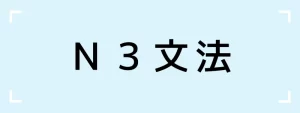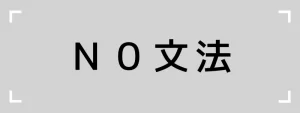接続
文の普通形+ということだ
意味
①听说…/据说…
②就是…/也就是说…
解説
2つの意味があります。
①伝聞
「~そうだ」と同じく伝聞を表します。
「~ということだ」の他に、会話では「~とのことだ」や「~んだって」が用いられます。
同じ伝聞を表す「~そうだ」よりも、根拠となる情報との距離が近いのが特徴です。
②結論を述べる
ある状況より推測される、あるいは得られる結論を述べる用法です。
結論を支える根拠は十分に信頼性があり、覆ることはほぼありません。
「つまり」などと呼応しやすく、「ってことだ」は口語としてよく用いられます。
例文
(1) 部長は忙しく、私たちの方でどうにか対処してほしいとのことだ。
部长说很忙,希望我们能够想办法解决。
The manager is busy, and it seems that he wants us to handle it on our own.
(2) 天気予報によると、明日は雨が降るということだ。
根据天气预报,明天会下雨。
According to the weather forecast, it will rain tomorrow.
(3) 彼は最近新しい彼女ができたんだって。
听说他最近有了新女朋友。
I heard he recently got a new girlfriend.
(4) Aさんは熱があるので、明日は行けないとのことだ。
听说A先生发烧,明天不能去。
A-san has a fever, so it seems he won’t be able to come tomorrow.
(5) 課長は君に話があるからすぐ来て欲しいとのことだ。
科长说有话要对你说,希望你马上来。
The section chief has something to discuss with you and wants you to come right away.
(6) 彼の姿は今日も見えない。つまりまたサボったってことだ。
今天也看不到他的身影。也就是说又偷懒了。
His presence is not visible again today. In other words, it means he skipped work again.
(7) この2人の答案は全て同じだった。つまりどちらかがカンニングをしたということだ。
这两个人的答案都是一样的。也就是说有人作弊了。
Both of their answers were exactly the same. In other words, it implies that one of them cheated.
(8) 明日から来なくてもいい。やる気がないなら初めから来るなということだ。
明天开始不来也可以。如果没有干劲的话从一开始就不要来。
You don’t have to come from tomorrow. If you don’t have the motivation, don’t come from the beginning.
備考
特になし




コメント